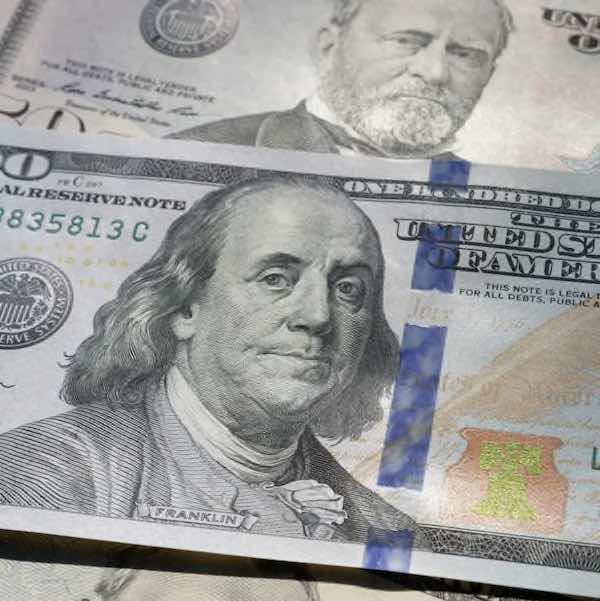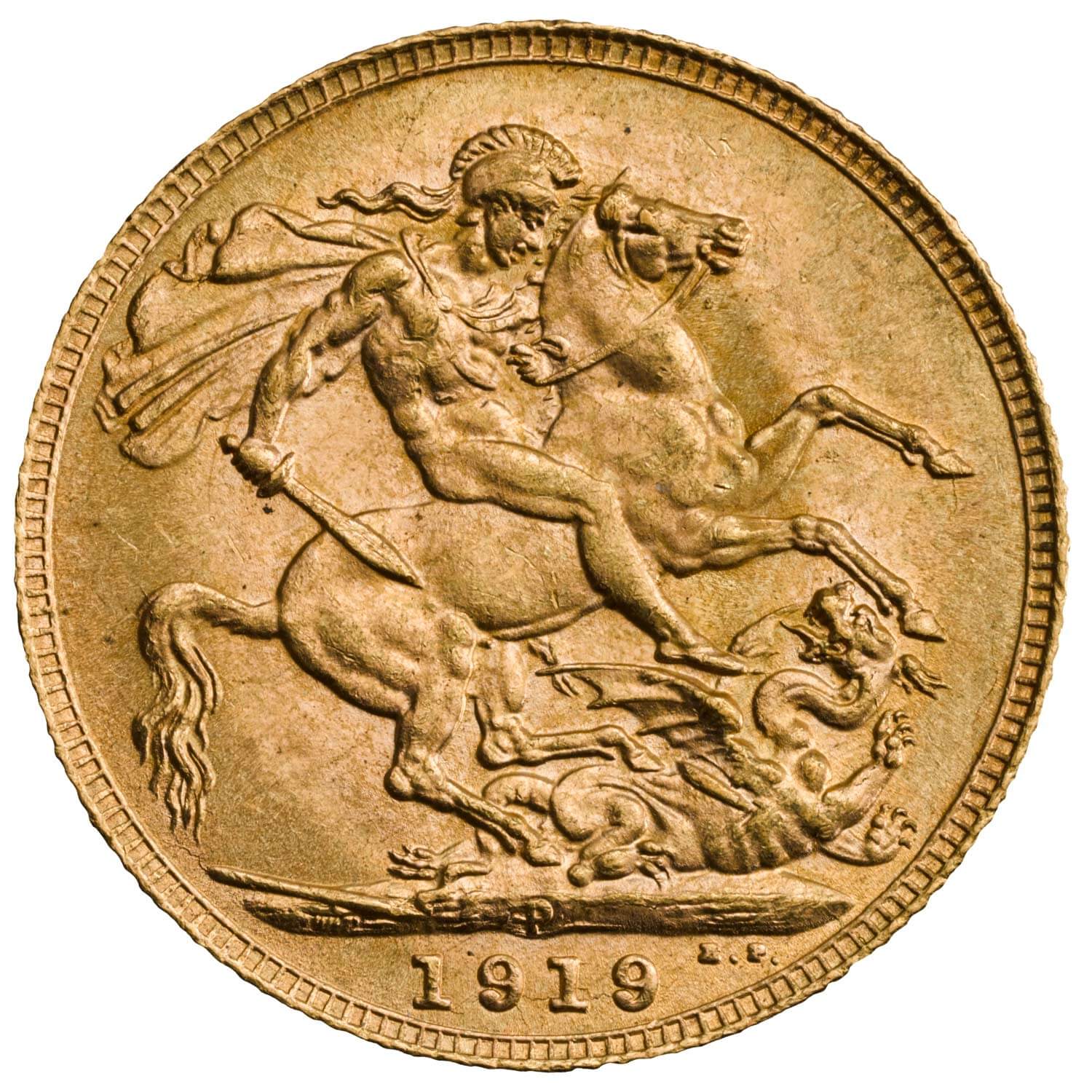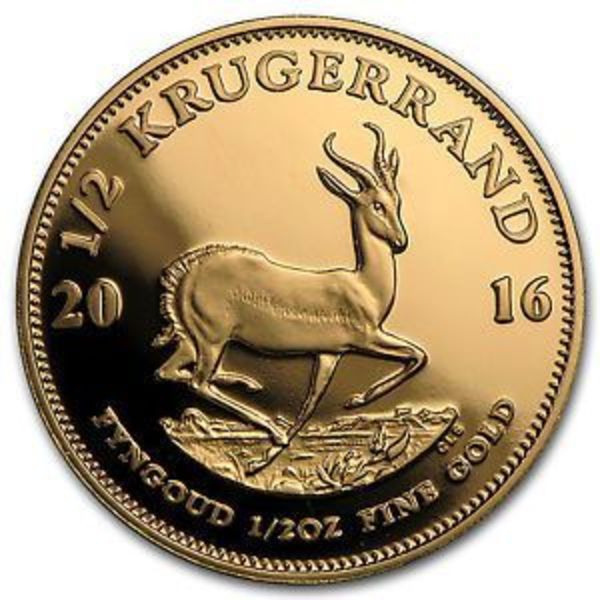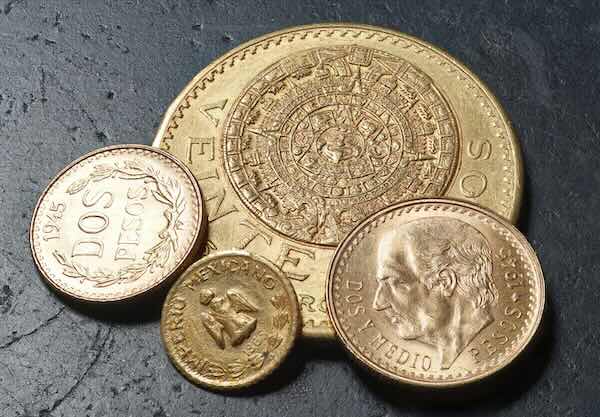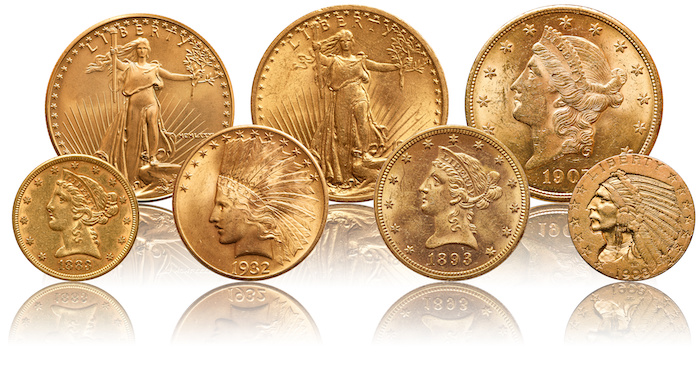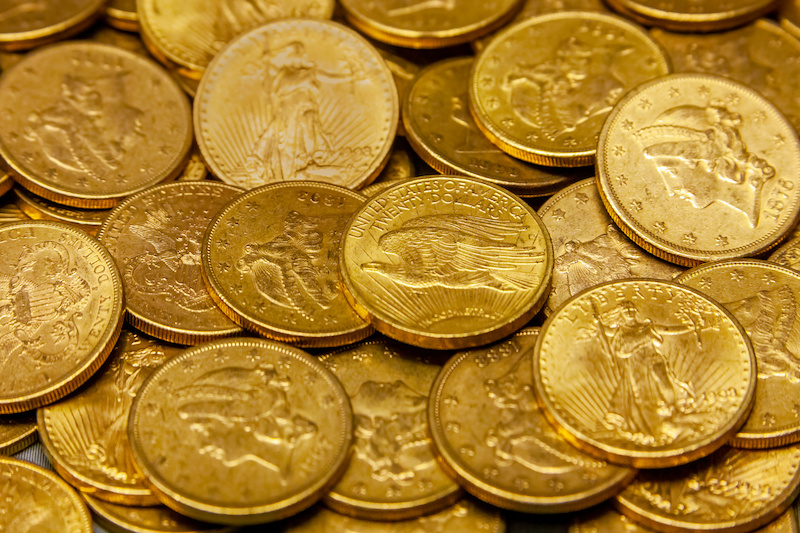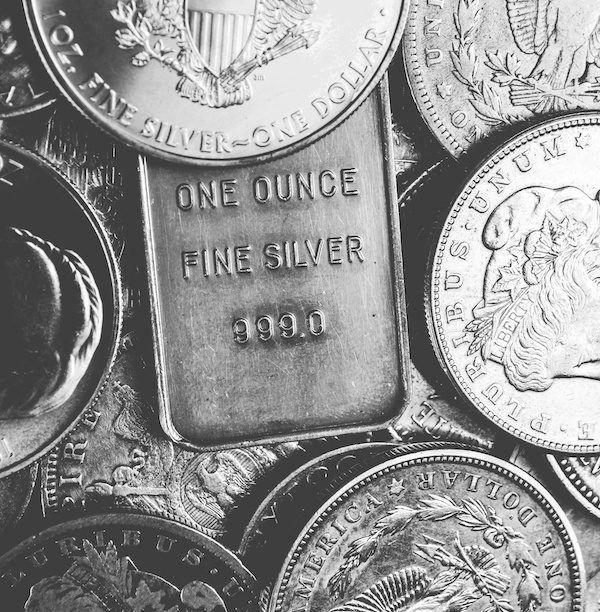Inheriting a collection of gold coins and bars can be a valuable and exciting opportunity. However, navigating the best ways to sell these items for the highest possible value can be daunting.
There are various ways to quickly sell gold coins and bars, including online dealers, local coin stores, gold refiners, online forums and social media, eBay, pawn shops, and “We Buy Gold” stores. We’ll also discuss each method’s pros and cons and recommend the best way to sell your inherited gold items.
Selling to an Online Dealer
One of the most convenient and efficient ways to sell gold coins and bars is through an online dealer. These companies specialize in buying and selling precious metals, making the process quick and easy.
Reputable online dealers such as APMEX, JM Bullion, and Bullion Exchanges have streamlined processes.
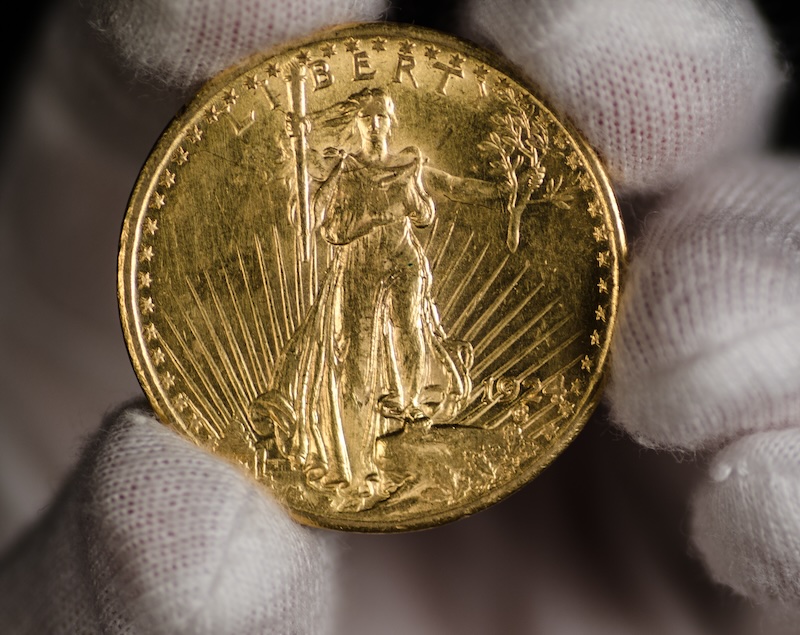
While Costco does not accept refunds or buy backs, online marketplaces like eBay offer buyback services that utilize APMEX gold and silver buybacks for appraisals, logistics and payment.
The first step is to contact the dealer and provide details about all the items you wish to sell and their condition. Some dealers may request photos of the items. It is a good idea to get price quotes from at least three dealers.
The dealer will offer a preliminary quote based on the current spot gold price and any numismatic value.
If accepted, you’ll ship the gold to them, often with insurance and tracking provided. Upon verification of the items, payment typically arrives via check, bank transfer, or PayPal.
Depending on the dealer, the price may not be fully locked in until they receive your metals. Be sure to ask each dealer for details of their process.
Online dealers typically pay close to the spot price for gold coins and bars, with some offering a small premium for numismatic items.
Pros and Cons of Selling Gold Coins to an Online Dealer
| Pros | Cons |
|---|---|
| Convenience of selling from home | Shipping time and risks |
| Simple process | Potential for lowball offers |
| Competitive prices | Payment can be longer than local options |
| Transparency |
Selling Gold to a Local Coins Store
Local coin stores are a traditional option for selling gold coins and bars. Bring your items to the store for an appraisal. The store owner or clerk will assess the gold’s weight, purity, and condition and provide an offer. Transactions are complete on the spot with immediate payment.
Pros and Cons of Selling to Local Coin Store
| Pros | Cons |
|---|---|
| Local presence | Lower prices |
| In-person evaluation | Limited market exposure |
| Face-to-face transactions allow for negotiation | Avoids shipping risks |
| Quick transaction |
Sell Coins to a Gold Refiner
Gold refiners buy gold items to melt down and purify. Contact a refiner for a quote based on the gold’s weight and purity. Ship your gold to the refiner, who will assay it to determine its exact content. After verification, the refiner pays you, usually 3% to 6% below the current spot price minus refining fees.
However, refiners may not be interested in numismatic items.
Pros and Cons of Selling to a Gold Refiner
| Pros | Cons |
|---|---|
| Competitive prices | Refining fees |
| Quick transaction | Limited market for numismatic items |
| Potential for lowball offers |
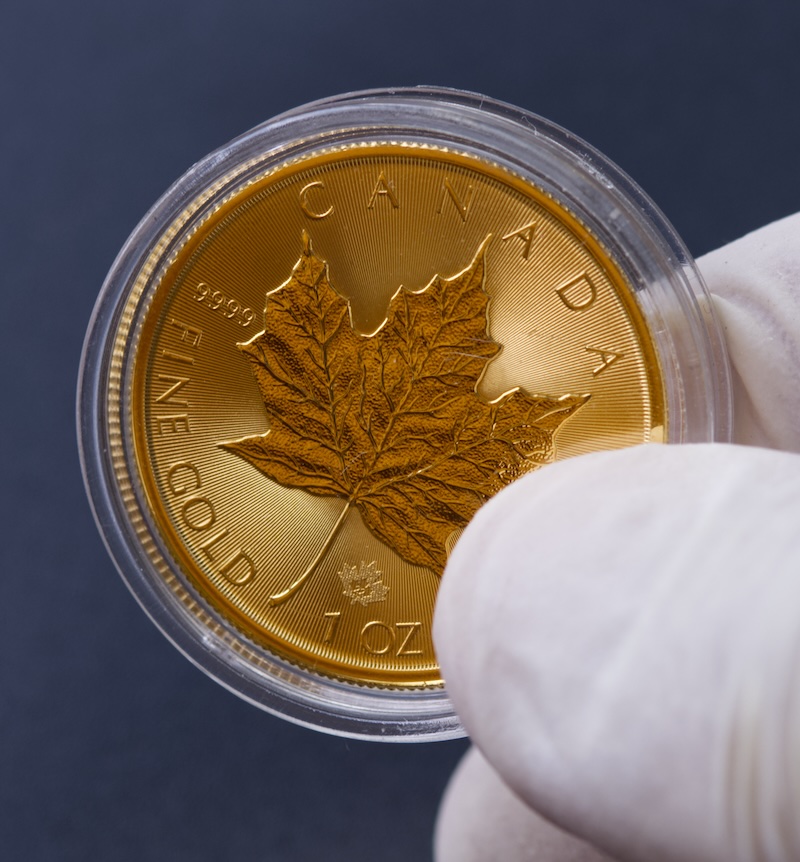
Selling on eBay and Peer-to-Peer Platforms
eBay and other online marketplaces offer broad exposure and the potential to command higher prices when selling gold coins and bars, especially those with numismatic value. Auctions can be effective for rare or high-demand pieces, while fixed-price listings may work better for bullion.
However, selling on eBay also comes with several caveats. You’ll need to manage your own listings, photograph your items, handle shipping, and navigate payment processing. eBay’s Buyer Protection system, while designed to protect buyers, can sometimes create complications for sellers—especially if a buyer makes a fraudulent claim or disputes the transaction after delivery.
Fees are another factor to consider. eBay takes a percentage of the final sale price, and payment processors like PayPal charge additional fees. When combined, these charges can reduce your net proceeds by up to 15% or more.
eBay also advertises a precious metals buyback program, but this is facilitated through a referral partnership with APMEX. In many cases, it may be more efficient to request a quote directly from APMEX and compare offers.
Collect Pure Marketplace: A Safer Alternative for Peer-to-Peer Sales
For those seeking a more secure and transparent peer-to-peer alternative, the Collect Pure Marketplace offers a dedicated platform designed specifically for precious metals and rare coin collectors. Unlike general-purpose platforms like eBay, Collect Pure is tailored for bullion and numismatics, providing built-in protections for both buyers and sellers.
Collect Pure includes features like verified user accounts, escrow-style payment processing, and dispute resolution protocols to reduce the risk of fraud. The platform also enables sellers to set their own prices or accept bids, offering more control and fewer fees than traditional online marketplaces. Details of the lowest ask and highest bid price are displayed on popular products listings on FindBullionPrices.com, below the traditional dealer price comparisons.
If you’re looking to sell gold coins or bullion safely and without excessive platform fees, CollectPure Marketplace is a strong option that bridges the gap between private sales and dealer buybacks.
Pros and Cons of Selling on eBay and CollectPure
| Feature | eBay | CollectPure Marketplace |
|---|---|---|
| Audience Reach | Very large | Targeted to bullion and numismatic buyers |
| Fees | Up to 15% with listing, PayPal, and final value fees | Lower fees and more transparent fee structure |
| Security | Risk of buyer disputes or fraud | Verified users, secure payment flow, buyer protection |
| Ease of Use | Requires photos, shipping, returns, etc. | Streamlined listing and transaction process |
| Best For | Rare coins with strong demand | Trusted peer-to-peer gold and silver transactions |
Selling to a Pawn Shop
Pawn shops are a quick and easy way to sell gold coins and bars. Bring your items to the shop for an appraisal. The pawnbroker will offer a price based on the current gold market.
However, Pawn shops typically pay significantly less than other methods. Pawn shops have higher overhead costs and need to profit, so they will offer you a price that allows them to resell your items at a markup.
Pros and Cons of Selling to a Pawn Shop
| Pros | Cons |
|---|---|
| Quick transaction | Significantly lower prices |
| No shipping required | Limited market exposure |
| Lack of expertise in numismatic values |
Selling to a “We Buy Gold” Store
“We Buy Gold” stores specialize in purchasing gold items similar to pawn shops, offering quick transactions and less money for your gold.
These stores are often found in shopping malls or strip malls and are primarily interested in buying gold for its melt value.
Visit the store with your items, and the staff will evaluate them and make an offer based on weight and purity.
Pros and Cons of Selling Coins to “We Buy Gold” Store
| Pros | Cons |
|---|---|
| Quick transaction | Significantly lower prices |
| No shipping required | Limited market exposure |
| Lack of expertise in numismatic values |
Key Takeaways When You Sell Gold Coins
- Compare gold coin buy back prices from multiple dealers
- Contact 3 to 5 different dealers or brokers to receive quotes or appraisals.
- Confirm in writing with each dealer when their price is locked in, the spot gold prices used in creating the quote, any dealer premiums or commission, and other pertinent details such as shipping or handling fees.
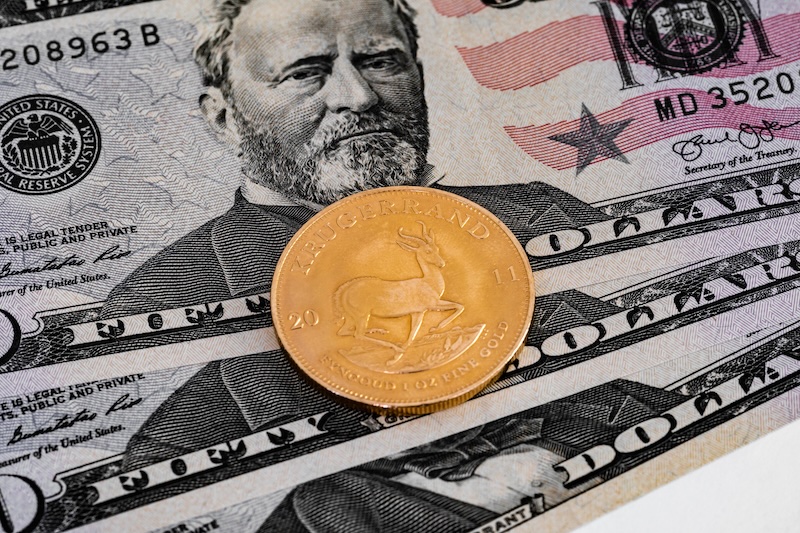
These strategies can help maximize your returns and avoid common pitfalls when selling gold coins.
FindBullionPrices.com can help find the best place to sell gold coins for the highest price. We provide up-to-date market prices for gold, enabling you to determine your coins’ current value quickly.
Some dealers offer buyback programs or special offers for purchasing gold coins. If you prefer in-person transactions, you can find local bullion dealers in our dealer directory by state.
